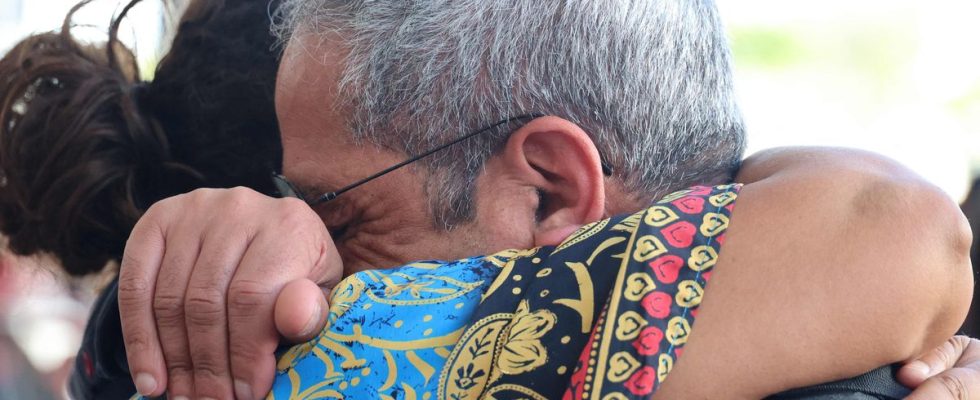They have found their roots. “Seeing my island again is great”… About fifty people, forcibly sent by social services in mainland France to repopulate departments affected by rural exodus such as Creuse, landed on Friday in Reunion which they left children. Some come back for the first time.
They are called the “Children of Creuse”: 2,000 children from Reunion taken from their parents and forcibly transferred to France, 10,000 km away, mainly in Creuse, between 1962 and 1984, according to an operation by the Office for the Development of migrations in the overseas departments (Bumidom) and a program set up by Michel Debré, minister of Charles de Gaulle and deputy of La Réunion. This case of migration of minors is becoming more and more known in France.
“There is still too much emotion”
The parents were convinced that their children were leaving for a better future and that they would return regularly to Reunion. In reality, the majority of them never returned to their native island and were never able to see their parents again.
“Seeing my island again is great,” says Daisy Jamain, a sixty-year-old, with emotion, among the 47 people who make this trip of at least two weeks organized by the Federation of Uprooted Children from Overseas Departments and Regions.
Some set foot for the first time in their native island. They find it difficult to answer interviews. “There is still far too much emotion,” said one of them simply. Daisy Jamain was transferred by social services at the age of 9, in the mid-1960s. An orphan, she left with two of her sisters. They “arrived there (in mainland France, editor’s note) in the cold with (their) little summer dresses”, remembers Daisy with emotion.
Separated from her two sisters upon her arrival, she will only find one of them 56 years later. They have since gotten to know each other and have returned to the Indian Ocean island together. Daisy Jamain says she is fulfilled and has no resentment. She still expects an official apology from the state for “having caused so many innocent children to suffer”.
Abuse in foster families
Victims of abuse and exploitation in their foster families, the fate of some children has often been painful. This is the case of Jacques Dalleau, 71 years old. Taken from his father in 1965, at the age of 14, he will never see him again. “I worked like a minion”, placed in a farm in Creuse, he testifies, saying that he was “exploited and mistreated”. He has already had the opportunity to return several times to Reunion. “Reconstruction remains difficult”, he says, even if he considers that “the worst is behind [lui] “.
Marlène Ouledy, 53, is also one of those children who have been abused by their foster family. Abducted in 1971 at the age of 9 months from the arms of her parents, she believes that “you cannot transplant a child like that. We do it with a plant or a flower but not with a human being”. She denounces the violence inflicted by her adoptive parents: “I was brought up with fists, they made me eat the tay (“excrement” in Reunionese Creole, editor’s note) and there was no supervision from the assistants social,” she says.
At 25, she learns that her biological parents are looking for her. It is a letter from the Departmental Directorate of Health and Social Affairs (DDASS) that allows him to find their trace. Marlène Ouledy returned to Reunion in 1999. She found her mother, her brothers and sisters there, but not her father, who died in 1983. “I ask for compensation and that our voice be brought to the Élysée. It is high time. Soon one after the other we will disappear,” she says.
“Memorial Repair”
In 2014, the National Assembly adopted a resolution proposed by Ericka Bareigts (socialist deputy from La Réunion), recognizing the “moral responsibility” of the French state in these forced exiles.
The children of Creuse are also asking for “memorial repair”. “We need a place of memory in the Creuse and our history should be studied in school textbooks”, notes Valérie Andanson, spokesperson for the federation of uprooted children in the DROMs.

